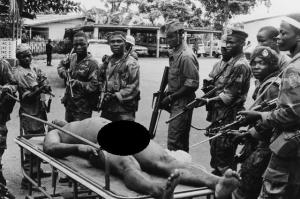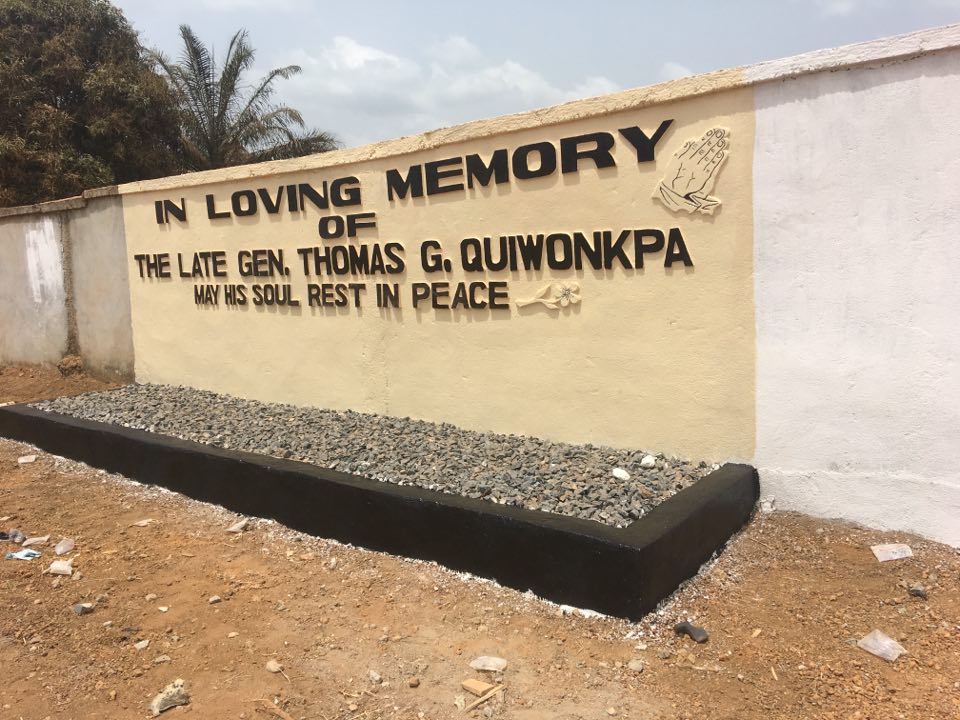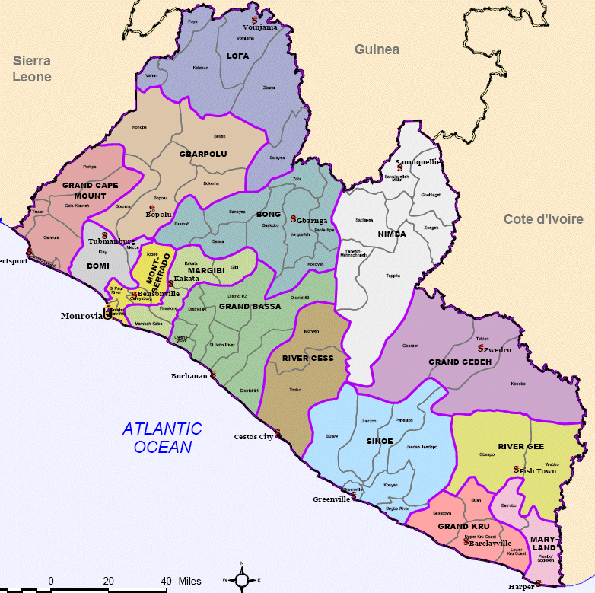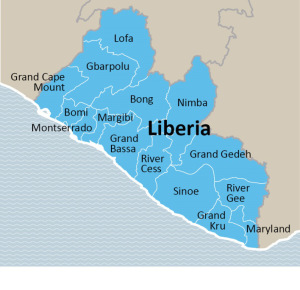Much has already been written (and said) about the late Thomas G. Quiwonkpa, one of the main perpetrators of the bloody 1980 coup in Liberia – if not the most important – who savagely toppled the regime of President William Tolbert. Thomas Quiwonkpa was a Gio from Nimba County and at the time of the coup a corporal in the Liberian Army. The reason why he did not emerge as the leader of the coup was that his comrade Samuel Kanyon Doe, a Krahn from Grand Gedeh County, was a master-sergeant in the same army, hence one military grade higher than Quiwonkpa. Doe thus became leader of the PRC, the People’s Redemption Council. Quiwonkpa was promoted General and Commander-in-Chief of the armed forces.
However, the two comrades later fell out and – to shorten a long story – in 1983 Quiwonkpa fled to the United States to escape an inevitable death by Doe loyalists. After fraudulent elections in 1985, Quiwonkpa returned with a group of armed men to install the real winner but the attempted coup against Samuel Doe failed. Quiwonkpa was captured by Doe’s forces, killed and partly cannibalized, his mutilated body publicly exhibited.
Using parts of Quiwonkpa’s body for ritualistic purposes and exposing his mutilated body publicly was meant to create juju and to enhance his killers’ power and prestige. Notably Samuel Doe and his Krahn soldiers who had captured the late General were to benefit from the thus created juju. (Source: Fred van der Kraaij, ‘Liberia: From the Love of Liberty to Paradise Lost’. African Studies Centre Leiden, 2015, p.52-56).
Liberia’s history is full of irony. When in 1990 President Samuel Doe was tortured to death by rebel commander Prince Johnson and his group he suffered the same fate. Doe’s mutilated body was publicly exposed in Monrovia (Source: Idem, p. 63) Warning – readers are warned that the picture of the late President Doe (below) might be found disturbing.


Image by © Patrick Robert/Sygma/Corbis
On March 10, 2020 an article appeared in the Daily Observer, one of Liberia’s leading newspapers, entitled ‘Memorial to Late Gen. Thomas G. Quiwonkpa Under Construction in Ganta, and for shortness sake it will be reproduced below.
Memorial to Late Gen. Thomas G. Quiwonkpa Under Construction in Ganta

Published: March 10, 2020
By: The Daily Observer, Ishmael F. Menkor
It appears to be one of the most unlikely places but, the Sanana Funeral Home in Ganta, along the road leading to Sanniquellie, Nimba County, has sealed on its wall the memorial of the late General Thomas G. Quiwonkpa. Quiwonkpa was killed in an aborted coup staged by him in 1985, and there is no trace of his grave as reports at the time noted that he was butchered with his heart extracted and testes placed in wine and drunk by his killers.
General Quiwonkpa, like some others including then Head-of-State Samuel Doe of the People’s Redemption Council (PRC), who seized power in 1980 following the assassination of President William R. Tolbert on April 12, do not have graves and therefore their surviving families and relatives are not able to memorialize them on Decoration Day on the second Wednesday in March of every year.
The proprietor of the Sanana funeral home, Ebenezer Williams, told the Daily Observer that the late Quiwonkpa was one of Liberia’s heroes, but nothing has been enshrined in any part of Liberia as a memorial. The memorial, still under construction, is expected to be covered in marble.

“I saw him at the Du-Side Hospital when I was small at the time. He used to visit the hospital for an eye treatment, and was always sharing with us every time we visited him,” he said.
“Today, he is gone, but nothing is left of him as a memorial for someone to lay wreath or pay homage on Decoration Day or even the Armed Forces Day,” he said.
“This marble design in his honor will certainly make his memory not to be lost and will create an avenue for people for come to pay their respect,” he added.
The late General Thomas G. Quiwonkpa was born July 24, 1955 and was a member of the People’s Redemption Council, a governing military junta that overthrew President William Richard Tolbert on April 12, 1980, by assassination.
The late General Quiwonkpa defected from the PRC in 1983 after he was removed as Commanding General of the Armed Forces of Liberia and given the position of Secretary-General.
He later went into exile and returned in 1985 as head of a dissident group called the National Patriotic Front of Liberia, which staged an aborted coup and was killed.
Since the brutal death of the late Quewonkpa, there has been no memorialization of him, neither in his county nor the country. Similar fate befell President Samuel Doe, who was also captured on September 9, 1990 and killed by the rebel group, Independent National Patriotic Front (INPFL) of Prince Johnson who is now a Senator of Nimba County. Sen. Johnson’s testimonies during the Truth and Reconciliation Commission (TRC) hearings indicated that Doe’s body was buried, then exhumed following request for an assessment. By tradition, since he could not be buried twice, the late President’s body was cremated and the ashes scattered in the river in Caldwell, where the INPFL had its base.
Williams, proprietor of the Sanana Funeral Home, is not a native of Nimba; however, he believes the slain General Quiwonkpa was a good and honest man in the Armed Forces of Liberia who needs to be remembered.
“We want people to constantly pay homage to this place and lay a wreath, either on his birthday, Decoration Day, or even the Armed Forces Day,” he concluded.
The people of Grand Gedeh County are also contemplating on erecting a monument in memory of slain President Samuel Doe to memorialize him. Scores of PRC members including Vice Head-of-State Thomas Wey-sehn and Deputy Vice Head-of-State, J. Nicholas Podier, also seem to have no identifiable graves to decorate.
Source: Memorial to Late Gen. Thomas G. Quiwonkpa Under Construction in Ganta
Recommended additional reading for those interested in Liberia’s politics and history:
Quote: “Quiwonkpa was captured and on November 15 was killed and mutilated by Krahn soldiers loyal to Doe . His killers then dismembered his body and reportedly ate parts of it. His body was publicly exhibited on the grounds of the Executive Mansion in Monrovia soon after his death.” Unquote
Source: Thomas Quiwonkpa – click here
Warning: a shocking account with graphic contents (webmaster FVDK):
General Quiwonkpa and Marconi: a connection of deadly proportions – click here
Warning: the follows contains graphic details (webmaster FVDK):
The Rise And Fall Of Samuel Doe Of Liberia (graphic Pics & Video ) – click here



